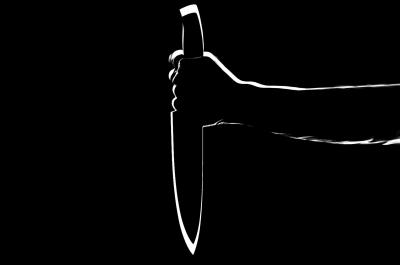A young Pakistani man stabs two persons in Paris with a meat cleaver. Ali Hassan thought that the victims worked with the Charlie Hebdo magazine, which five years ago had enraged Muslims all over the world by publishing cartoons of Prophet Muhammad. One would have expected the family of the attacker in Pakistan being remorseful and worried about the future of the young man. Nothing of that sort has happened though. Hassan's father is actually "proud" of his son, who has "done a great job"; he is indeed "very happy" about his son's butchery. Welcome to Imran Khan's Naya Pakistan.
It needs to be mentioned here that <a href="https://indianarrative.com/world/india-walks-out-of-unga-protesting-imrans-diatribe-15056.html" target="_blank" rel="noopener noreferrer"><strong>Naya Pakistan</strong></a>, where a zillion jihadists bloom and a hundred radicalization schools contend, was not made in a day; it didn't erupt suddenly with the advent of a cricket star in the political arena; it was genetically structured —and properly nurtured — to become a jihadist, rogue state.
Imran Khan's Islamist leanings — as evident from his close ties with the all-powerful Army, the ISI, and mad mullahs — have surely exacerbated the country's tighter embrace of jihad. Former military dictator Zia-ul Haq's Islamization drive in the 1980s played an even bigger role. Similarly, Zulfikar Ali Bhutto's fueled Islamist feelings. But none of these could be termed as the original sin.
<strong>Read More</strong>: <a href="https://indianarrative.com/opinion/sweden-suffers-the-consequences-of-placating-islamists-11354.html">Sweden suffers the consequences of placating Islamists</a>
<img class="alignnone size-large wp-image-15583" src="https://indianarrative.com/wp-content/uploads/2020/09/1aef81fd231564ed259ca41af1500bd6-1-1024×678.jpg" alt="" />
"Pakistan's legal Islamization began with the Objectives Resolution of 1949, the twelve guiding principles for its future constitution. The resolution was a balanced, if vague, document. Islam was mentioned in three clauses, which dealt with divine sovereignty; the importance of the democratic, social, and ethical principles of Islam; and enabling Muslims to live their lives according to Islam. The resolution also guaranteed the equal rights of religious minorities, and their freedom of expression and of worship, though this was ‘subject to law and public morality’," wrote Brookings' scholar Madiha Afzal in Pakistan Under Siege: Extremism, Society, and the State (Penguin Viking, 2018).
Many other experts on the subject agree with her. Arif Jamal, a US-based Islamism expert, <a href="https://www.dw.com/en/pakistans-islamization-before-and-after-dictator-zia-ul-haq/a-19480315">blames</a> the nation's founder Muhammad Ali Jinnah for Islamic extremism. In fact, he blames other supposedly secular Pakistani leaders too for fundamentalism.
<strong>Read More</strong>: <a href="https://indianarrative.com/opinion/radical-islam-the-root-cause-of-riots-in-sweden-11334.html">Radical Islam the root cause of riots in Sweden</a>
"It was Jinnah who violated the stand-still agreement with the Maharaja of Jammu and Kashmir and sent tribal mujahideen to the valley. Similarly, it was Zulfikar Ali Bhutto who had invited Afghan jihadists like Hekmatyar and Rabbani to Pakistan in order to destabilize the neighboring country. General Haq carried these policies forward," Jamal told DW. His daughter Benazir also followed in his footsteps after coming to power in 1988.
Naufil Shahrukh, an analyst at the Islamabad-based Institute of Policy Studies, is also of a similar opinion: "Since Pakistan's independence, a majority of people in the country have wanted an Islamic system."
At the heart of the issue is a simple truth: when a country accepts a bad idea, bad consequences follow sooner or later. For Pakistan, "an Islamic system" was that idea (as, for India, it was socialism). Politicians flirt with all sorts of ideologies, notions, fantasies, etc., to endear themselves to electorate. They often gain by their flirtations, but the bigger gainer is always the idea or ideology they espouse.
Jinnah, Bhutto, and Haq got considerable political mileage from radical Islam, but the real victor was jihad. For today it permeates not just the entire body-politic but also society, culture, and life in general. Ali Hassan's father's exultation is testimony to that.
.




















